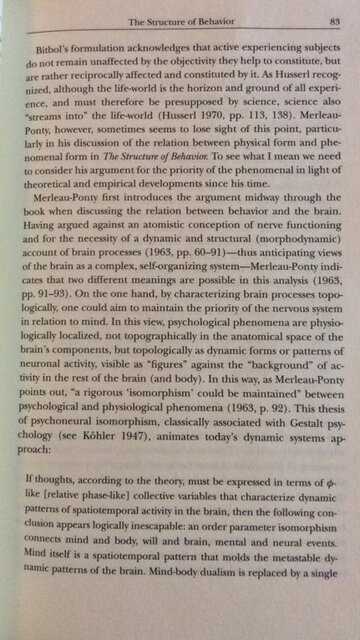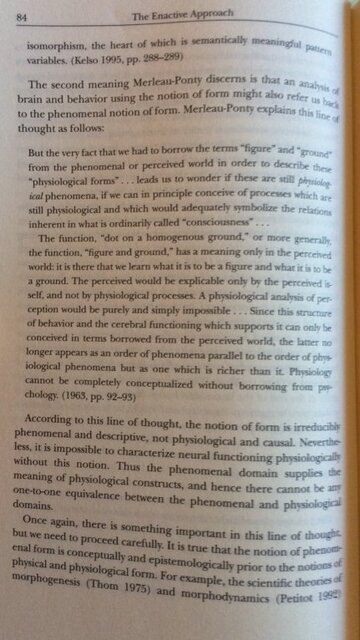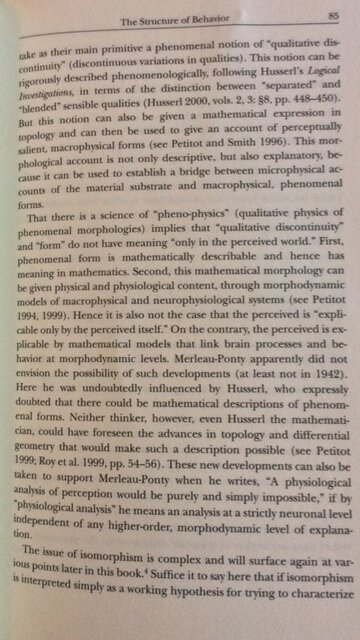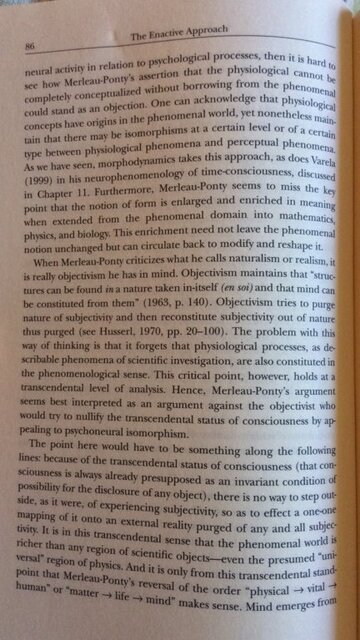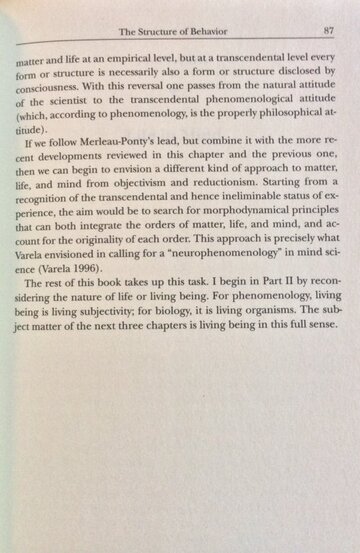S
smcder
Guest
@smcder: I myself can't see how this happens ... how something of a different order altogether (experience) arises from electro-chemical interactions. And I don't think you can see it either, I think you are simply claim it - based on the idea of emergence, but emergence itself isn't something you can see or have any intuitions about - it's just a statement that more complex things come out of interactions according to simple rules.
If you do actually see this, then what imagery, what metaphor, what comparisons, what intuitions fo you have about it and can you make to something that we do know about?
@Soupie: I’m not claiming that phenomenal experience arises from electro-chemical interactions.
I’m saying that phenomenal experience/feeling is fundamental. I’m not saying -- in this present discussion -- that feeling emerges from two neurons firing together. (Although it might.)
I’m saying that feeling is fundamental to all interactions of matter/energy. Fundamental = It just is.
Then what I’m saying is that the actions of neurons (and perhaps other special physical structures) interacting with one another in such a way facilitate the shaping of this fundamental experience/feeling into what we know as our phenomenal, narrative landscape.
So, no, I can’t see how “phenomenal feeling” emerges from matter, hence phenomenal feeling is fundamental.
Yes, I can see how a process of billions of integrated, synchronizing neurons can take this fundamental, phenomenal feeling and shape it into a process of experience we call mind.
Above you said it is difficult for you to see how qualia or whole minds are fundamental.
But here you say:
I’m saying that phenomenal experience/feeling is fundamental.
"qualia are individual instances of subjective, conscious experience"
So you do see qualia as fundamental. And instances of subjective, conscious experience are fundamental, so its a short step to say mindedness is fundamental. If we are to avoid "what it is like" emerging or coming out of physical processes (or mental processes) - then we say it to is fundamental ... there is something it is like to be a quark ... as Russell would say, it's the intrinsic nature of a (any) thing.
And again:
I’m saying that feeling is fundamental to all interactions of matter/energy. Fundamental = It just is.
Qualia by any other name, mindedness, feeling = what it is like ...
And again:
So, no, I can’t see how “phenomenal feeling” emerges from matter, hence phenomenal feeling is fundamental.
But now you do something very strange - which is throw away all the advantage of saying phenomenal feeling is fundamental:
Then what I’m saying is that the actions of neurons (and perhaps other special physical structures) interacting with one another in such a way facilitate the shaping of this fundamental experience/feeling into what we know as our phenomenal, narrative landscape.
Because now you are saying that neurons and physical structures some how interact with one another in such a way that this fundamental thing (feeling/experience) emerges into something entirely new - which is a mind, a self-aware mind ... (whole minds aren't fundamental, so whole minds have to emerge from these interactions) so that is why I say you've just shifted emergence along a bit and shifted the hard problem a long, but solving the hard problem is what motivated panpsychism in the first place.
Again:
Yes, I can see how a process of billions of integrated, synchronizing neurons can take this fundamental, phenomenal feeling and shape it into a process of experience we call mind.
So what if feeling is fundamental(?) because a "process of experience" (mind) still has to emerge and that's no easier to see than feeling emerging from matter, so no I don't think you can "see" this either.
matter:feeling
qualia:mind
mind:self-awareness
So for me panpsychism has lost its appeal because its no easier to account for mind from qualia or self-awareness from mind than mind from matter.
Or do we want to say mind and self-awareness are fundamental?
And that is why I asked if you were getting minds and brains confused.
Its also why the hard problem is the problem of why I am me and not you. Nagel's whole essay is on subjectivity, subjectivity is had by a subject, by a "me" - what it is like to be means something has a subjectivity, an individuality - it only makes sense for what it is like to be a bat if you are talking about what it is like to be a (particular) bat.
You can see this immediately because if Nagel asked "what it is like to be a human?" you would know he means what it is like to be a particular human ... so, what it's like to be me and not you ... its our initial tendency not to assign individuality to a bat that prevents you from seeing it right off.
Last edited by a moderator:


